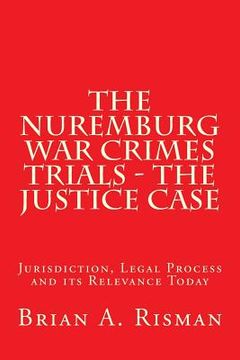Reseña del libro "Matthew Arnold (en Inglés)"
Mr. Matthew Arnold, like other good men of our times, disliked the idea of being made the subject of a regular biography; and the only official and authoritative sources of information as to the details of his life are the Letters published by his family, under the editorship of Mr G.W.E. Russell (2 vols., London, 1895). To these, therefore, it seems to be a duty to confine oneself, as far as such details are concerned, save as regards a very few additional facts which are public property. Matthew Arnold (24 December 1822 - 15 April 1888) was an English poet and cultural critic who worked as an inspector of schools. He was the son of Thomas Arnold, the famed headmaster of Rugby School, and brother to both Tom Arnold, literary professor, and William Delafield Arnold, novelist and colonial administrator. Matthew Arnold has been characterised as a sage writer, a type of writer who chastises and instructs the reader on contemporary social issues. The Reverend John Keble, who would become one of the leaders of the Oxford Movement, stood as godfather to Matthew. "Thomas Arnold admired Keble's 'hymns' in The Christian Year, only reversing himself with exasperation when this old friend became a Romeward-tending 'High Church' reactionary in the 1830s." In 1828, Arnold's father was appointed Headmaster of Rugby School and his young family took up residence, that year, in the Headmaster's house. In 1831, Arnold was tutored by his uncle, Rev. John Buckland in the small village of Laleham. In 1834, the Arnolds occupied a holiday home, Fox How, in the Lake District. William Wordsworth was a neighbour and close friend. In 1836, Arnold was sent to Winchester College, but in 1837 he returned to Rugby School where he was enrolled in the fifth form. He moved to the sixth form in 1838 and thus came under the direct tutelage of his father. He wrote verse for the manuscript Fox How Magazine co-produced with his brother Tom for the family's enjoyment from 1838 to 1843. During his years there, he won school prizes for English essay writing, and Latin and English poetry. His prize poem, "Alaric at Rome," was printed at Rugby. In 1841, he won an open scholarship to Balliol College, Oxford. During his residence at Oxford, his friendship ripened with Arthur Hugh Clough, another Rugby old boy who had been one of his father's favourites. Arnold attended John Henry Newman's sermons at St. Mary's but did not join the Oxford Movement. His father died suddenly of heart disease in 1842, and Fox How became his family's permanent residence. Arnold's poem Cromwell won the 1843 Newdigate prize. He graduated in the following year with a 2nd class honours degree in Literae Humaniores. In 1845, after a short interlude of teaching at Rugby, he was elected Fellow of Oriel College, Oxford. In 1847, he became Private Secretary to Lord Lansdowne, Lord President of the Council. In 1849, he published his first book of poetry, The Strayed Reveller. In 1850 Wordsworth died; Arnold published his "Memorial Verses" on the older poet in Fraser's Magazine. In 1852, Arnold published his second volume of poems, Empedocles on Etna, and Other Poems. In 1853, he published Poems: A New Edition, a selection from the two earlier volumes famously excluding Empedocles on Etna, but adding new poems, Sohrab and Rustum and The Scholar Gipsy. In 1854, Poems: Second Series appeared; also a selection, it included the new poem, Balder Dead. Arnold was elected Professor of Poetry at Oxford in 1857, and he was the first in this position to deliver his lectures in English rather than in Latin.[6] He was re-elected in 1862. On Translating Homer (1861) and the initial thoughts that Arnold would transform into Culture and Anarchy were among the fruits of the Oxford lectures. In 1859, he conducted the first of three trips to the continent at the behest of parliament to study European educational practices. He self-published The Popular Education of France (1861)

